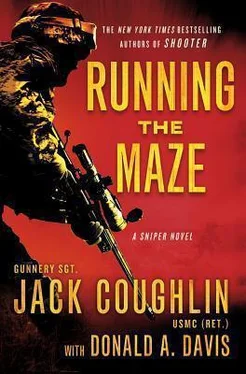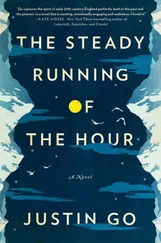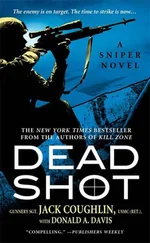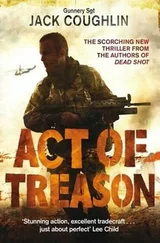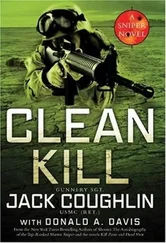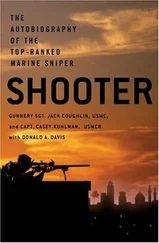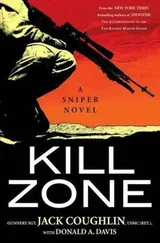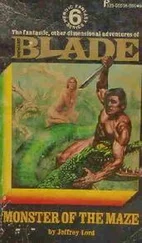Taylor spoke again on the aircraft’s internal network. “Listen up, everybody. The doom and gloom squad is out to meet us. The only time those three ever get together is to play poker or deliver bad news. I did not get an alert about it, so we’ll just have to wait and see. Don’t spaz out.”
The helo shifted into a smooth hover, then edged slowly forward to match the speed of the Stratton. Petty Officer Second Class Beth Ledford thought, Dang. Wonder what they want?
KYLE SWANSON STOOD AT the general’s window in the Pentagon, looking out over the serene park at 1 Rotary Road while the Lizard gave the office a final electronics sweep before the meeting. The crepe myrtle trees were showing signs of maturity as their roots dug deeper into the soil, a visual marker of passing time, like a child’s growth measured year by year on the sill of a door. People were strolling on the gravel and sitting on the cantilevered benches. More than a decade had elapsed since American Airlines Flight 77 was hijacked a short time after takeoff from Washington on September 11, 2001. Its captors had turned the fully fueled Boeing 757 jetliner around and flown it straight into the west wall of the Pentagon at 345 miles per hour. There were 184 benches out there now, one for each of the 59 passengers and crew and 125 military and civilian Pentagon personnel who died that day. The same day, the Twin Towers fell in New York, and the United States went to war against terrorism.
Reconstruction of the charred and gutted section of the huge building went fast, for the Pentagon had been in the middle of a renovation program. The emphasis on secrecy and going to war against terrorists also brought along a gloves-off approach, and several special offices were included in the new Pentagon, offices that were almost impossible to find on any diagram or directory. These would be home bases for warriors who prowled the dark side. One of those areas was assigned to Major General Bradley Middleton of the U.S. Marine Corps, the commander of Task Force Trident, a special operations unit that reported only to the president of the United States.
The glass through which Swanson was watching the solemn tourists was two inches thick and blast resistant. Structural steel beams encased the few rooms, the doors had combination locks and retina scans, and a polymer-mesh-reinforced fabric covered the walls. The electronics suite was state-of-the-art. Swanson was pleased that he worked right at the aiming point for the terrorists. Time might pass, but coming to work here hardened his resolve every day. His job was to fight the enemy, wherever they might be, and no one in Trident believed the death of Osama bin Laden meant the war was over. Rival sects in the Middle East were trying to seize bin Laden’s mantle of mysterious leadership. Terrorists don’t sign peace treaties.
Neither did Task Force Trident. It had only five members, but Middleton could draw as many people as needed from other services and agencies to accomplish a mission. The two-star general was the commander, and the operations officer was Sybelle Summers, the youngest female lieutenant colonel in the Marine Corps and the only woman ever to make it through Marine Recon training. Her clandestine exploits had earned her the nickname “Queen of Darkness.”
Navy Commander Benton Freedman was Trident’s communications officer, an electronics genius with a round face, round glasses, and such an incredible intellect that he had been called “the Wizard” in the submarine service. The Marines in Trident altered that to “Lizard” to get under his skin, and the nickname stuck.
Senior Master Sergeant O. O. Dawkins was the administrative chief, the behind-the-scenes operative who kept the ship running, no matter what the obstacles. A huge man with a deep voice, he wore his uniform crisp and starched, his short hair high and tight, and was one the few men to hold the Marines’ highest enlisted rank.
The final member of Trident was Marine Gunnery Sergeant Swanson, the never-miss trigger-puller, considered by many to be the best sniper in the deadly game.
“You finished yet, Lizard?” General Middleton asked loudly. He was seated at his desk, with a stack of folders before him.
“Just now, sir. We’re clean.” Freedman tapped a final key on his laptop, and the automatic sweep of the office for listening devices came to a halt. He hit one more key, and backup dead bolts slid home in the outer doors. Swanson drifted over and took the last seat in front of the desk.
The general looked at the four of them, his big brows narrowing toward the broad nose as he laid a palm on the folders. “All right, people, let’s get down to business,” he said. “We’ve got a Green Light package.” He handed out four of the five folders, keeping one for himself and opening it to lift out an eight-by-ten glossy photograph of a man in white robes, smiling through a bearded face. “Recognize this guy?”
“It’s that fuckin’ Charlie Brown.” The gruff voice of Senior Master Sergeant Dawkins rumbled.
“Score one for Double-Oh,” the general confirmed. “Abdullah al-Mohammed, born as Charles Peter Brown in Lawton, Oklahoma, thirty-five years ago. He’s our target. Most of the rest of the papers in your folders are a compilation of what is known about him, current locations, that sort of thing.”
“How good is the information, sir?” Sybelle Summers asked as she fanned quickly through the pages. “They include newspaper clippings, for God’s sake. That’s not actionable information. Got to be some snip-and-paster over at CIA.”
“It indeed is pretty sloppy work for a Green Light, but I will do a full workup.” Commander Freedman anticipated that within a few days, he would know everything possible about Charlie Brown and could put it into coherent form. His mind was already at work, and he unconsciously started to hum the old rhythm and blues song “Charlie Brown.” Fe-fe, fi-fi, fo-fo, fum.
“Stop that,” the general snapped.
“Sorry, sir. The Coasters, 1959. King Curtis on the tenor sax.”
“Why is everybody always pickin’ on me?” Dawkins drawled the song’s most memorable line.
“All of you. Shut up. You are not a doo-wop group!”
They smiled. The tense atmosphere that usually came with an assassination assignment was broken. Now it was just a job.
“Where is he?” asked Summers.
“Looks like Yemen,” said the Lizard. “There’s a country that is going the wrong way in a hurry on terrorism.”
The general leaned back and folded his hands on his chest. “The little bastard crossed the line. It was bad enough that he went through al Qaeda training and then began those broadcasts in English to try to recruit more Americans, but now he’s really gotten big in operations. Buddies up with fanatical American kids and prepares them to return to the U.S. as his moles, just waiting for his command to blow up some shopping mall and create mass casualties.”
Summers asked, “So our leaders have decided there will be no due process or fair trials or that other stuff for him. We’re going to execute an American citizen?”
“Yes, Colonel Summers. That is exactly what we’re going to do. Several presidents have had the authority to do so. You have a problem with not giving Charlie Brown a jury trial back in Oklahoma?”
“Oh, none at all, sir. He forfeited that right, as far as I’m concerned. Just another terrorist bum now. Before, he was just an annoyance, but now that he wants to be a real player, he has to pay the price.” There was a murmur of agreement in the room.
“Well, gang, he likely is not going to be coming to us, so we will have to go after him. High-value target. Gunny Swanson, you have anything to add?”
Читать дальше
